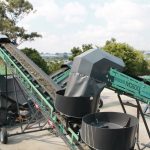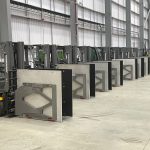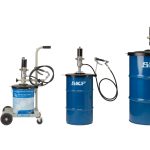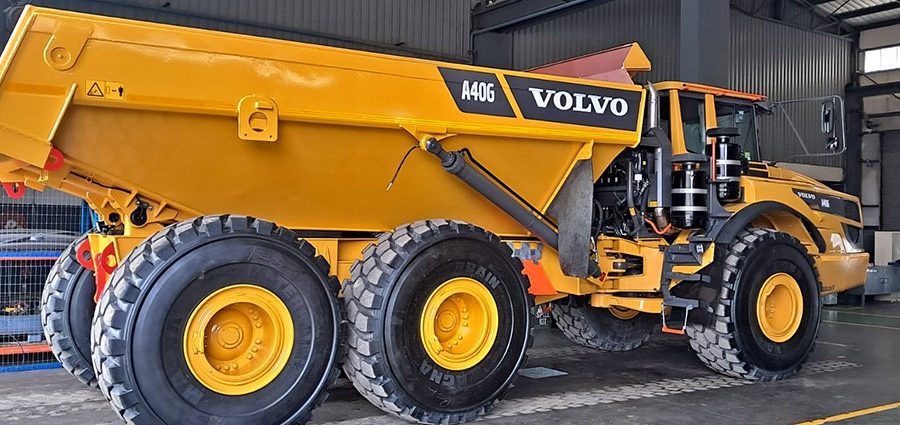As Volvo Construction Equipment (Volvo CE) dealer Babcock completes its first articulated hauler rebuild in South Africa, Anders Eriksson, service market manager for Africa at Volvo CE, explains why more fleet owners across Africa are turning to machine rebuilds as a smart, sustainable way to maximise value and embrace the circular economy.
Earlier this year, in South Africa, our dealer Babcock completed its first full rebuild of a Volvo A40G articulated hauler, stripping the machine to the chassis and building it back to Volvo standard with a new powertrain. It’s a significant step – not just for Babcock, but for the many contractors and fleet operators across Africa who are starting to look at their machines differently.
Instead of asking, “When should I replace this?”, more and more customers are asking, “How much more can I get from it?” And increasingly, the answer is: quite a lot – especially with a Volvo certified rebuild.
Making the economic case for rebuilds
The rebuild process is about protecting your original investment. You already own the asset. You know its history. And with a rebuild, you can restore it to a high-performing, reliable state – without the financial burden of buying new or even used equipment.
For our customers across Africa, that’s an appealing proposition. It lowers your total cost of ownership, reduces downtime, and helps you get more value from every machine in your fleet. Rebuilt machines typically benefit from lower depreciation, more favourable insurance costs, and – thanks to the known history – more predictable operations.
For many businesses, especially in today’s economic climate, that can make a serious difference.
When is the right time to rebuild?
There’s no single answer. The decision depends on the application, the environment, and the maintenance history of the machine. But in general, we see machines become eligible for rebuild between 10,000 and 20,000 operating hours.
Before any rebuild, our trained Volvo technicians carry out a detailed health check of the machine. From there, we work closely with the customer to recommend the right scope of work – whether that’s a powertrain overhaul or a full-scale rebuild with structural restoration, a renewed cab, and retrofitted upgrades.
With proper planning and scheduling, a typical rebuild takes around 12 weeks. We ensure all components and parts are ordered in advance, so there are no surprises or delays once the machine is in the workshop.

Performance without compromise
There are some common misconceptions around machine rebuilds. When completed to Volvo factory-approved standards, rebuilt machines deliver excellent productivity and uptime. You’re not extending a machine’s life by simply fixing or replacing a few components; you’re proactively restoring it to top performance – and often upgrading it in the process.
Just as importantly, rebuilds reduce the risk of unplanned failures. When a rebuild is complete, customers have peace of mind. The machine is known, serviced, and backed by a warranty on all major components. And because the rebuild is planned, site teams can schedule around the downtime instead of reacting to it.
A circular solution that makes practical sense
The environmental benefits of machine rebuilds are also gaining attention – not just in Europe, but in Africa too. By reusing large structural components and restoring major systems, rebuilds dramatically reduce the energy, raw materials, and transport emissions associated with buying new equipment.
To give just one example: rebuilding a used engine saves around 56% in CO2 emissions compared to producing a new one. For a transmission, that figure is closer to 60%. And when you consider how much copper, aluminium and bronze is built into every large machine, the resource efficiency of a rebuild becomes even more compelling.
This matters for customers facing increasing pressure to report on sustainability performance or align with ESG goals – particularly in mining, infrastructure and public-sector projects.
Growing demand across the region
At Volvo CE, we’re seeing increased interest in rebuilds throughout Africa and the Middle East. Articulated haulers, wheel loaders and large excavators are especially well suited for rebuilds – not only because of their durability, but because the cost of full replacement can be significant.
What’s even more encouraging is that many customers who try a rebuild once come back again. They see the benefit – financially, operationally, and environmentally – and begin to integrate rebuilds as a standard part of their fleet management strategy.
With trusted Volvo dealers like Babcock now delivering rebuilds locally, customers in South Africa and beyond can access this service closer to home, with full transparency and support. And we’re proud to support this shift. Because when a machine still has more to give – and the right partner is there to help extend its life – rebuilding isn’t just an option. It’s the right thing to do.
Visit the Volvo CE website for more information about Volvo certified rebuilds.















